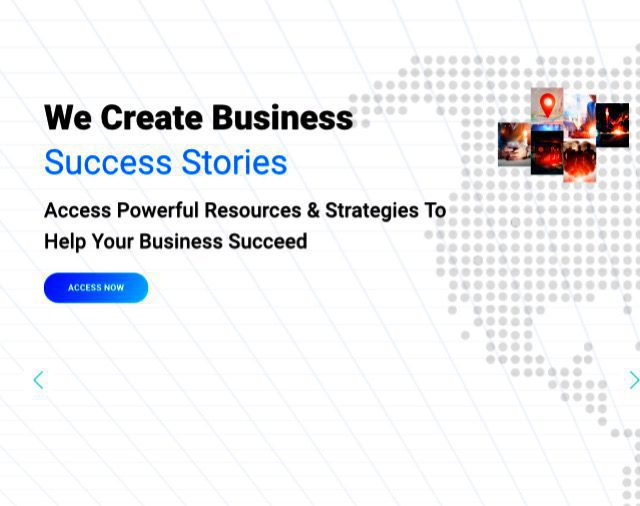We've become a long way since the Mad Men era of market and announce. The modern purveyor is as much mad scientist as inspired imaginative, thanks to the proliferation of data and tools to access and investigate it. Just as inventor Thomas Edison was able to run 10,000 different experimentations, changing a little something now, a little something there, until he found the formula that worked, best available purveyors today use their artistic line-up to come up with possibilities, and can then accomplish ventures to testify their usefulness. The science of selling has become increasingly, well, scientific.
Given the revelation that hyper targeted market are most effective sell, its no surprise that almost every commerce bureau or digital authority out there will tell you they're data-driven. But at this top, data-driven marketing is more of a basic requirements than a differentiator. Without data supporting them, marketing recommendations would be no better than opinions, and analyzing ROI would be imprecise, at best. But if every marketer is incorporating data into his or her safaruss, why is it that most market sends , no matter how they're delivered to shoppers, seem to be forgotten in a matter of a few seconds? And why is it that marketing funds get spent with senior executives and crews struggling to answer the simple question What did we get out of that?
Jon Brody, CEO and co-founder of Ladder , a rise commerce bureau, replies The difficulty is that beings have too much data and are constructing fewer good decisions because they're so data-driven. You need to be ROI-driven, he speaks. Effective commerce is about optimization. Thats why Brody and his crew, who have worked with everyone from startups backed by Y Combinator to Fortune 500 companies, approach selling like scientists in a lab.
In short, he speaks, We race marketing experiments to facilitate customs germinate. This type of approach has worked for Ladder, and it can work for any team that makes the next 5 tips to heart 😛 TAGEND
1. Dont be afraid to take risks
When you're experimenting, you're going to find out what doesn't work on your space to finding out what does. Data driven purveyors improve the thousands of public segments and cross them against thousands of targets, alleges Dennis Yu, Chief Technology Officer at BlitzMetrics , a provider of courses on Facebook marketing, But with so many compoundings probable, each venture can have just been a few dollars of budget and a few units of endeavour against them. Most purveyors cannot scale to this productivity, since they are of the I once tried that attitude. Don't fall into this bunker. Continue experimenting, deter making dangers. Failing is built into the process. Read from it, and continue.
2. Take advantage of the tools accessible
There are new technologies showing almost daily that allow purveyors to measure performance. Native platforms like Facebook are increasingly as good( or better) at optimization than any human or even the current harvest of ad tech tools that were built to optimize what youre previously doing, Brody mentions. The opportunity that these scaffolds present is enormous.
Larry Kim, CEO of mobile commerce software business Mobile Monkey and a popular loudspeaker at digital commerce consultations, is one of the top sell mad scientists of our senility. He uses tools like WordStream to give him the data he requires to analyze how massive the wages are for having an above norm CTR( clickthrough charge) in Google Adwords, conducting Kim to conclude that Google so greatly reinforces high-pitched CTR/ Quality Score ads( and conversely penalizes keywords with crappy CTRs) that an astonishing hybrid solution becomes apparent: use your content marketing efforts to cover informational keywords with SEO content and commercial keywords via PPC. Sound mad? Dont worry, spoke Larry's case study and you'll see how his experimentations can help you save a great deal of money on your next paid probe campaign.
3. Don't work in silos
You'll be using much of the same data to teach all the components of expedition improvement from programme, to creative, to executing, to placement. When your team works closely together throughout each step of the development process, each unit representative gains a better understanding of how his or her wreak changes the efficacy of the entire campaign and drives ROI. All the members of your squad “mustve been” ROI-driven.
4. Remember what you ascertain
Your team shouldn't have to reinvent the wheel each time you begin a new job. Ideally, you should be keeping track of what the hell are you learn what works and what doesn't for certain types of businesses or manufactures, how gatherings respond to sure-fire messaging, what tools are most effective so that you're able to start constructing some institutional lore that brand-new hires can later sounds into.
5. Dont stop optimizing
Just because you're appreciating a lot of success with a specific safarus doesn't mean you should rest on your laurels. Theres always room for improvement. Plus, the more you experiment, the more you memorize. If you're keeping track of that added insight( see above ), you can apply it to your next campaign.
The more you experiment, the better understanding you'll have of which data actually troubles. Likewise, compiling additional data that confines marketing invest to safarus performance across the marketing moves will give you a better idea to seeing how to best invest the money in your market plan. Thats what being ROI-driven is all about, and thats what have contributed to real growing for your company.
Read more: http :// mashable.com/ 2017/06/ 08/ best-marketers-are-mad-scientists /









Thanks for this excellent article. After reading this article, I strongly agree that ‘don’t be afraid to take risks’ is the most important one. If we don’t take risks, we will never try the ways we believe in. Try everything we believe is the first step we need to have. Anyway, thanks for your great article, thanks!
You are welcome and very correct. Fear does not help in any way to attaining your goals. Thanks for sharing!